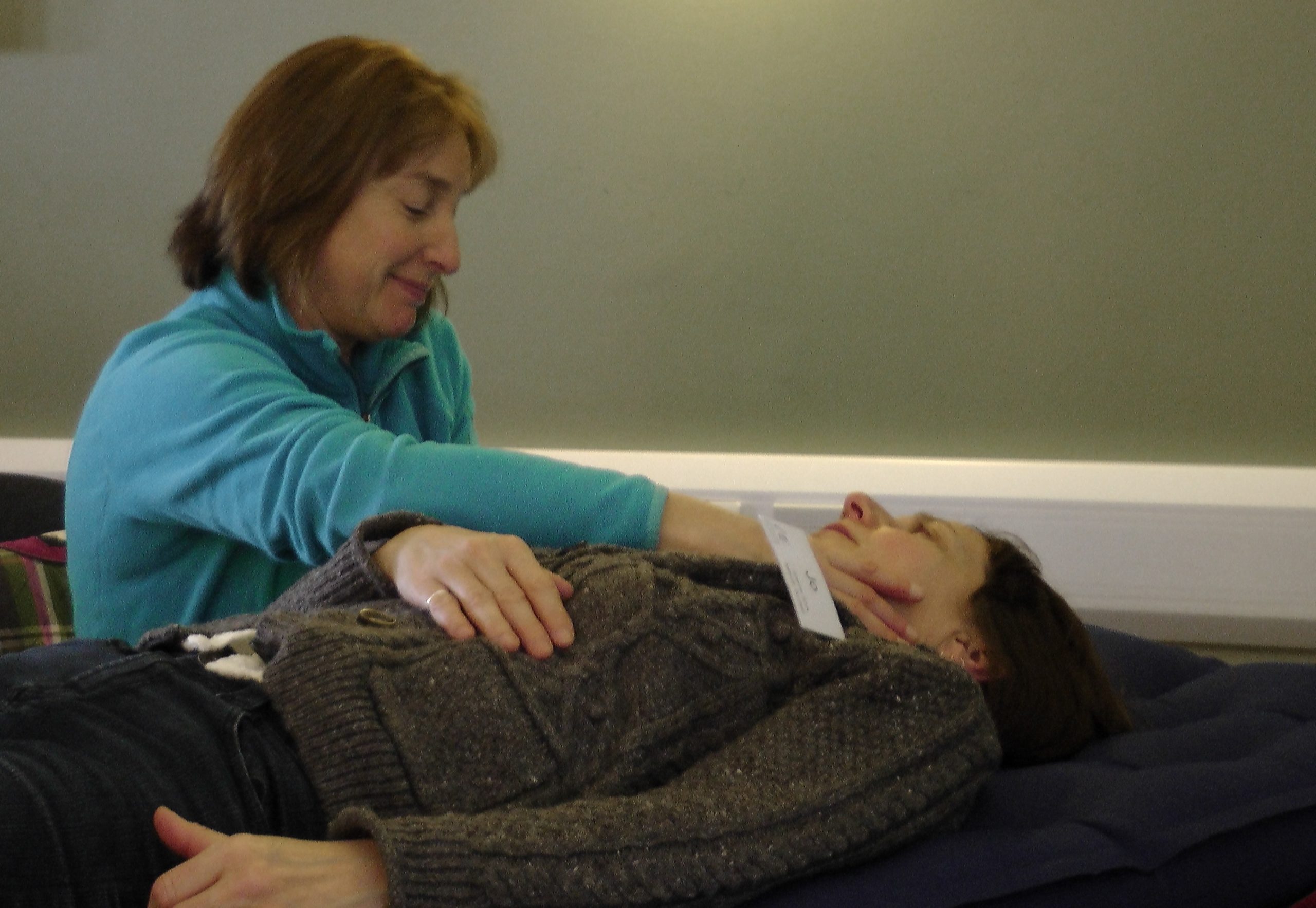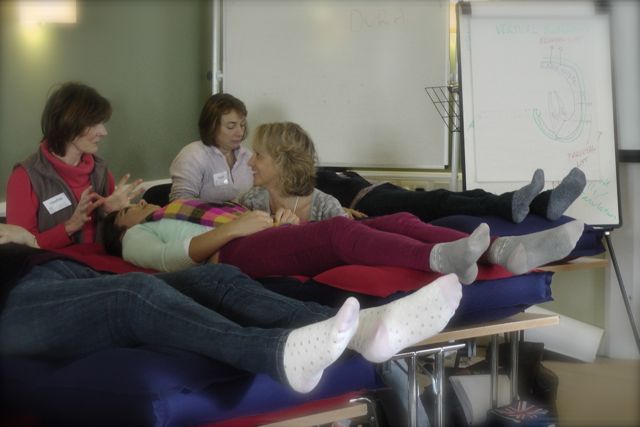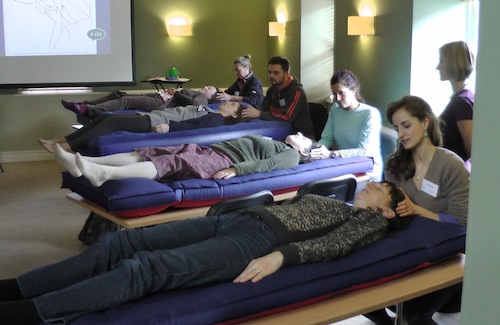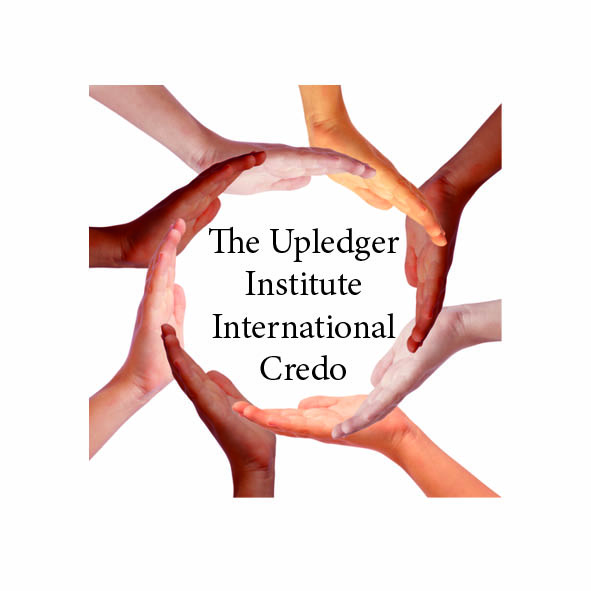Our Ethos
Part of the ethos of this work is about taking responsibility. This is a key essence of the practice of this work – that we are there to support and hopefully empower our clients to take responsibility for themselves, for their lives, their health and their ultimate wellbeing. This seeps into Dr Upledger’s beliefs about training too. He felt that anyone with the right intention and caring approach could train their hands to do this work. So he made the field more open than any kind of osteopathy or similar training had ever been before. Back in the mid 70s in the US, this was quite an approach to take.
That said, because of the many different regulations in different states of the US, it was not practical to have many different courses to train people from scratch, as different states had completely different requirements. So the training was set up to be suitable for practitioners already qualified in a field of healthcare, and has been very successful as such.
However, this does not mean that the courses are all you need to know. This is where the ethos of taking responsibility for our own learning comes in. We will give you a huge amount of information in the courses we offer and through our support mechanisms. If you do not know the anatomical background or have a baseline of palpatory skill or people to practice on, it is for you to go and find what you need.
These days, there is more demand externally for our qualifications and our recognition, which is no bad thing, but the bottom line is still that we must take responsibility for our own training and our own practice. We will support you as much as we can, but it is up to you to reach out for that support and come and get the backing. We hope you will come and walk the path with us. All that said, what else is available from our approach?
Upledger CST Training:
Flexible – Experiential – Practical – High Quality
Flexible
Arranged in five principal stages, the Upledger CranioSacral Training programme is built around a series of four- to five-day intensive workshops. You may move through these stages at your own pace, provided you allow time between workshops (typically at least three months or more) to absorb and apply the practical work, further develop your palpatory skills, review the course notes and cover required reading. There is no time pressure or time limit, so it really is up to you to decide the best route through the training for you.
It is also possible to become qualified in Upledger CST by first getting some other bodywork training to begin to develop your palpatory skills, then going through the core training, working through the exam process and having sufficient background in the study of anatomy, physiology and pathology and clinical practice. We are also now able to offer this background and foundation ourselves. See the Where to Begin page when you have finished in this section.

If you put your hands on people to make them feel better then love has to go with those hands. Love infuses it all.
J. E. Upledger
Experiential
The workshops are primarily experiential. There are numerous demonstrations and ‘hands-on’ exercises supported by clear, illustrated lectures, connecting the practical to the theory and the type of symptoms clients may experience. All aspects of each workshop’s syllabus are brought together in a form that can immediately be integrated into your own practice. Those who require greater degrees of technical depth and detail will find the textbooks and research work satisfying, but we emphasise that the aim of the workshops is to encourage and support an objective and compassionate therapeutic approach.

Practical
At each workshop, you are provided with a comprehensive study guide of the course material with ample space for your own notes. All course material has been written and organised by Dr John Upledger, whose textbooks also provide a detailed anatomical, physiological and research background for the workshops and describe every technique; those that have changed since the textbooks were written will be clearly pointed out to you in class (or study groups).

High quality
Your workshop will be conducted by an Upledger Institute Certified Instructor. All our instructors have gone through pretty rigorous training – including an extensive programme of preparation, lecturing practice and time spent working with a number of other instructors. They will also be an experienced and practising healthcare professional.
Current teaching formats draw on over 25 years of instruction to groups with widely differing therapeutic approaches and experience, and from all over the world. The Institute now has ombudsmen for each individual course who work with all of the teachers worldwide who are qualified to teach that course, to ensure consistency, collaboration and commitment to the essence of Dr John’s work and teaching.
Your bit
The final essential element of the programme is practice. We do all we can to support and encourage your development at every stage: through networking, study groups, opportunities to work with qualified practitioners, and the chance (after SER1) to come and assist classes as a teaching assistant (TA)… But there is nothing like getting your hands on!
Do you think this might be for you? Find out more from the Overview of our courses. (Or you can jump to Where to Begin if you are really keen…)


